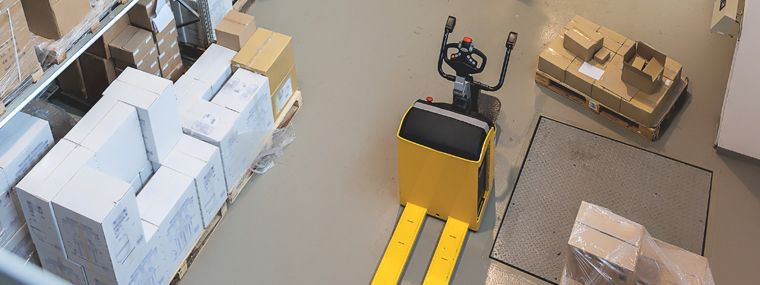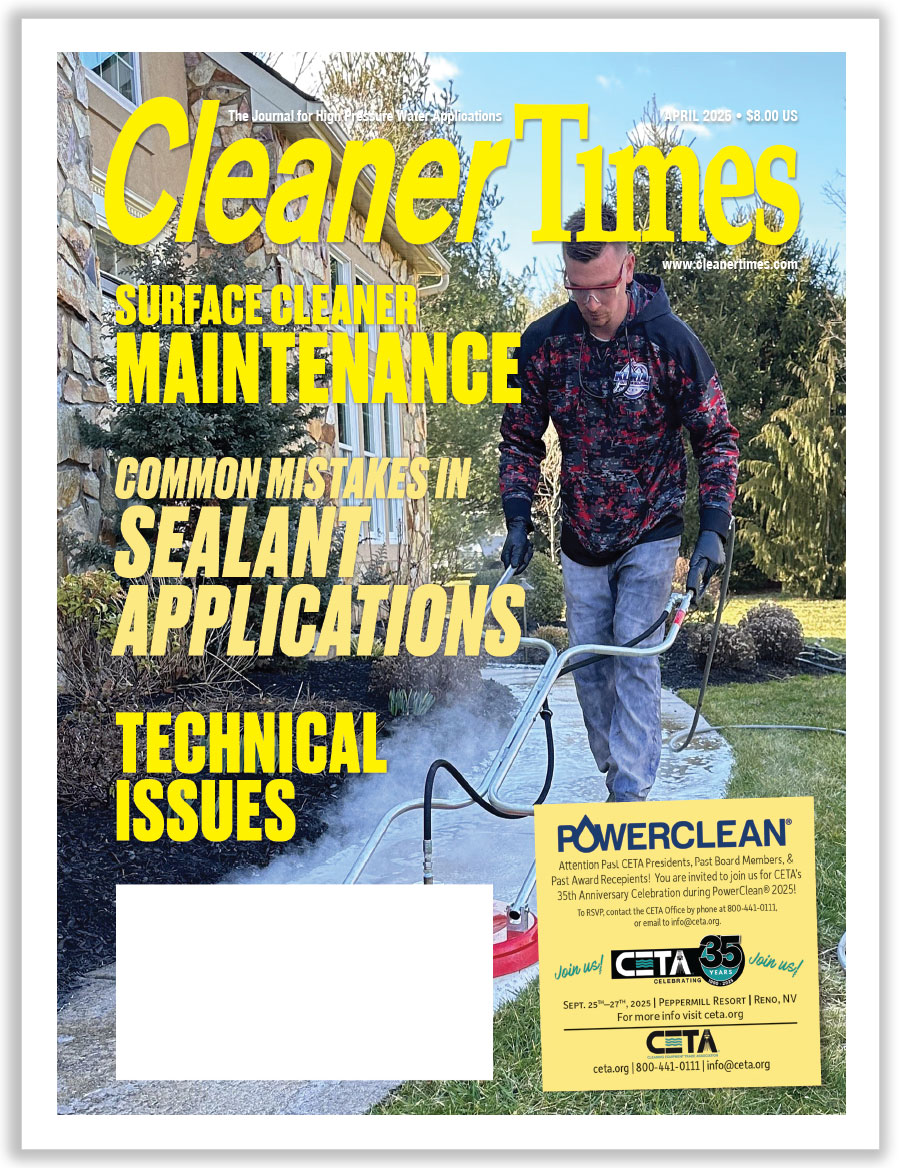
Excellence Recognized: CETA Certification for Distributors
By Diane M. Calabrese / Published May 2017

Excellence is what the CETA Distributor Certification Program recognizes.
Yes, the Cleaning Equipment Trade Association embraces a membership committed to doing things correctly and then, finding ways to do them even better. CETA’s distributor, manufacturer, and supplier members strive to meet the highest standards each day.
Yet the CETA Distributor Certi-fication Program takes things to an even higher level. Just as physicians pursue certification in specialty areas to test themselves and verify they are at the top of their profession, professionals in other industries also pursue certification. The display of board certification in the ophthalmologist’s or dentist’s office gives the patient comfort. It indicates the practitioner is immersed in his or her field and also committed to life-long learning.
So it is with certification in this industry. Distributors who attain certification in the CETA program are immersed in the industry. They are also engaged in education and innovation that does not stop.
In the July 2016 CETA Edge column, we reviewed the history of the distributor certification program. (Founding members of CETA agreed early on that certification provides a way to convey seriousness of purpose to clients.) We also reviewed the basics of how a distributor attains certification.
Changes To Note
Earlier this year, the CETA Board of Directors made a few changes to the distributor certification program with the objective of making it even stronger. Chad Rasmussen, the current senior vice president of CETA, explains the changes.
“Certified distributors now must continue to accumulate points to keep certification,” says Rasmussen. “Distributors who do not meet this category requirement will lose their certification.”
There has also been a change in the way points are allotted. “Points earned from CETA-sanctioned events are now earned by the hour rather than by the seminar,” says Rasmussen. “In the past, distributors would earn five points per seminar. They will now earn five points per seminar hour while participating in the sanctioned events.”
Point allocation to employees of distributors continues to be part of the mix. “Multiple employees can participate in earning points. As in the past, distributors will still not be limited on the number of points they can accumulate in the employee category.”
Another big change encompasses the venues for earning points, settings that will increase. “There will be multiple opportunities to earn points this year with the regional meeting we will be having on June 21, 2017, in Denver,” says Rasmussen. The annual convention, which is September 10–14, 2017, in Las Vegas, NV, will be replete with opportunities, as always.
[For more information about the June regional meeting and the CETA Annual Convention Trade Show co-located with ISSA/Interclean, see www.ceta.org.]
Two other changes in the application process are these: The number of points a distributor can earn from sources outside CETA settings has been increased to 40 (from 25). The application fee has doubled and now stands at $50.
CETA distributor members who become certified will get a boost beyond their ability to display the CETA-Certified logo. “CETA will send press releases to two local newspapers for new certified distributors,” says Rasmussen. “In addition, CETA has begun promoting certified distributors on social media.”
The Basics Reviewed
Any CETA member in good standing may begin the process of becoming a certified distributor. First and foremost, the member agrees to continuously abide by the CETA Code of Ethics.
The distributor member meets the minimum requirement for starting the certification process with two years (or more) experience in the cleaning equipment industry. After meeting threshold  eligibility, a distributor becomes certified by accumulating 100 points from certification sources. Points may come from participation in CETA-sanctioned programs. Or, they may accrue from a combination of CETA-sanctioned programs, factory or supplier training, and years of experience.
eligibility, a distributor becomes certified by accumulating 100 points from certification sources. Points may come from participation in CETA-sanctioned programs. Or, they may accrue from a combination of CETA-sanctioned programs, factory or supplier training, and years of experience.
CETA-sanctioned events will earn participants five points per seminar hour. Employees of distributors can also earn points at the same rate, and the points apply to the distributor’s total for certification. A maximum of 40 points may be earned from factory or supplier training programs (i.e., outside sources). A maximum of 25 points may be recorded for years of experience, with each year earning one point.
To maintain certification, a distributor must continue to amass points, or in other words, continue to engage in active learning along with employees. The points must average 20 points across each successive two-year period post-certification (e.g., 15 points in year one and 25 points in year two).
The foregoing outlines the basics—enough to illustrate that distributors in good standing with CETA are already doing a great deal of what it takes to become certified. For detailed information about certification and an application, visit www.ceta.org.
Code of Ethics
A distributor must pledge to abide by the CETA Code of Ethics as a requisite for submitting credentials for certification. Elements of the code include the highest standard of personal conduct, the promotion and encouragement of ethical standards in the industry, company loyalty, responsible action in meeting all laws and regulations, trustworthiness, a cooperative spirit, honest communication, and a steadfast commitment to excellence.
Excellence, particularly as virtue, is its own reward. But when distributors participate in the certification program, they are contributing to an industry whole that is greater than the sum of its parts. They are truly using every opportunity to improve understanding of the cleaning equipment industry and to form synergistic ties with colleagues and competitors alike.
Good Outcomes
The time that distributors take to obtain certification is time spent well. CETA Certified Distributors display a logo that demonstrates their investment in excellence to prospective customers. The distributors also make gains across their efforts to sustain and grow their businesses.
Because certification documents that baseline standards are met (and exceeded), it makes it easier to communicate with customers, competitors, and colleagues. An industry filled with certified distributors sends a message about exceptional competence.
Distributors who work or aspire to work with large industrial customers know that the requirements they are asked to meet have become especially exacting over the years. To send an employee on site to talk with a potential customer about needs—in wastewater treatment or in-line washing equipment—a distributor will have to be able to first document that the employee is qualified to assess the needs at the site.
In order to have the opportunity to submit a proposal to a large company, certain certifications must be held and documented. A certified distributor will have most of the documentation up to date and easily accessible.
There’s another way to look at the entire certification process. It derives from the old reminder that one should not hide one’s light under a bushel. In highlighting the integrity, industry involvement, and initiative of a business, a distributor should not be shy about documenting all that goes on to maintain the highest standards.
We hope that all CETA distributor members are already adhering informally to all that the CETA Certified Distributor program entails. So, why not go the extra step and formalize the documentation, become certified, and take another big step to invigorate our industry?





